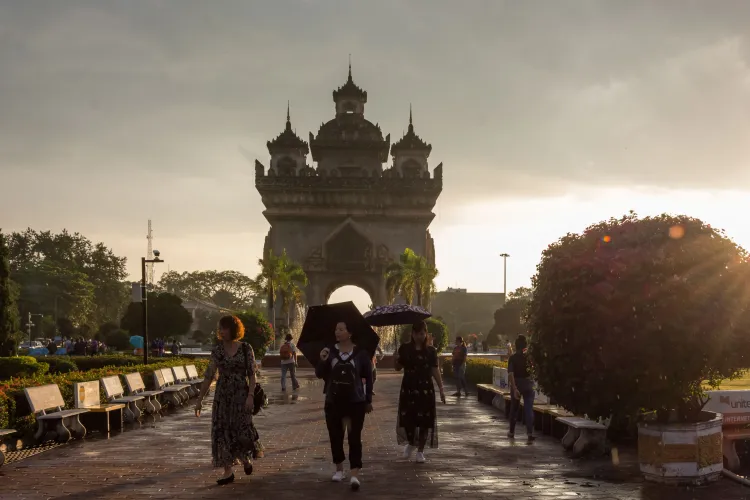How is Laos Working to Enhance Migrant Workers' Rights?

Synopsis
Key Takeaways
- PROMISE project aims to support migrant workers from 2021 to 2025.
- Focus on skills development and job opportunities, especially for women.
- Ongoing legislative measures to enhance migrant workers' rights.
- Government initiatives to raise the minimum wage and expand vocational training.
- Active campaigns to prevent human trafficking.
Vientiane, Aug 15 (NationPress) Officials and stakeholders from Laos gathered to assess the progress of the Poverty Reduction through Safe Migration, Skills Development, and Enhanced Job Placement (PROMISE) initiative and to strategize future plans aimed at enhancing the management and safeguarding of migrant workers' rights.
The meeting took place in the capital city of Vientiane on Thursday, offering a platform to evaluate the project's advancements and to outline strategic paths that would further bolster support for migrant workers, as reported by the Lao Ministry of Labour and Social Welfare on Friday, according to Xinhua News Agency.
The PROMISE project is a regional effort executed from 2021 to 2025 in Cambodia, Laos, Myanmar, and Thailand. Its primary aim is to eliminate the obstacles encountered by migrant workers, employers, and communities, thereby contributing to poverty alleviation while aiding in economic recovery and growth.
This initiative emphasizes ensuring access to skills development, self-employment opportunities, and stable job placements, with a particular focus on female migrant workers.
The Ministry of Labour and Social Welfare in Laos persists in its commitment to managing and safeguarding the rights of migrant workers through various legislative enhancements, including amendments to the Employment Law.
Additionally, the government is striving to enhance the domestic employment landscape by increasing the minimum wage, broadening access to vocational training, and generating job opportunities for returning migrant workers.
Efforts are also underway in Laos to raise public awareness aimed at preventing human trafficking.
In this context, the Ministry of Labour and Social Welfare launched a campaign to mark the World Day Against Trafficking in Persons, with the goal of reinforcing collaborative efforts against human trafficking and advocating for legal employment, as stated by the ministry on August 6.
This initiative was designed to inform the public about the severe implications of human trafficking, a grave crime that infringes upon human rights, causes physical and psychological distress to victims, and disrupts families, socio-economic development, and national security.
The World Day Against Trafficking in Persons is commemorated annually on July 30 to promote awareness and foster international collaboration in the fight against human trafficking.









